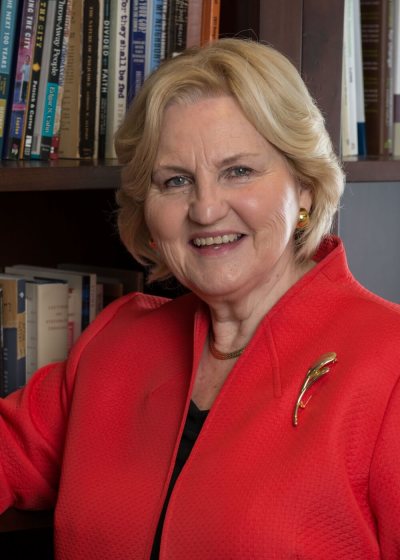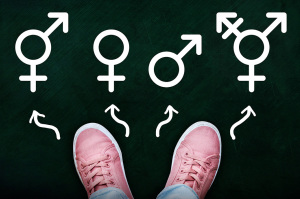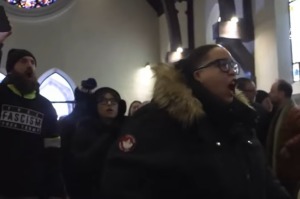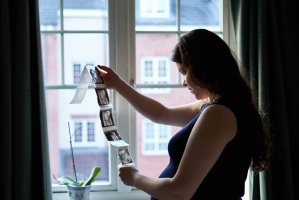New border policies undermine protections for human trafficking victims
In 2008, President George W. Bush signed the Trafficking Victims Protection Reauthorization Act (TVPRA) into law. Named the William Wilberforce Act, in homage to the renowned evangelical social reformer and politician, it ensured that children seeking safety in the U.S. would receive screening for trafficking and violent persecution, while also granting them the right to full judicial procedure.

Our organizations, Bethany Christian Services and the Wesleyan Church — along with Christians across the country — applauded the passage of this law. One of us was present in 2008 when President Bush signed the bill; the other leads an organization that has since helped thousands of children reunify with their families because of this law.
Fast forward 12 years, and the coronavirus outbreak has contributed to the upending of compassionate protections at our southern border. In a move that harms vulnerable children and flouts American law, government officials are no longer upholding the TVPRA.
On March 20, 2020, the U.S. Department of Homeland Security (DHS) unveiled plans to restrict all nonessential travel across the southern border. Since then, U.S. Customs and Border Protection (CBP) has begun turning away most asylum-seekers at the border without any vetting or due process. In practice, CBP is deporting vulnerable children without processing them according to the TVRPA. This is evidenced by a sudden 78% drop in unaccompanied child referrals to the Office of Refugee Resettlement.
The coronavirus is a real threat to the safety and health of our law-enforcement officials operating at the border as it is to all of humanity. But the TVPRA exists for a reason; without it, vulnerable children would lack any protection against human trafficking, which has not halted with the rest of the world and is in fact expected to worsen throughout the pandemic.A CBP report found that unaccompanied children and undocumented immigrants are disproportionately victimized by human traffickers. Violence and exploitation, as well as physical and emotional abuse, are the norm for victims of human trafficking. According to the White House, some 70% of people who cross the southern border are victims of violence. So why is helping them considered unessential?
Right now, CBP is maximizing speed and efficiency by reducing the time they take to process people at the border. And while that may mean less risk of COVID-19 exposure, do we as a nation really have to make that choice, between safety from a virus and safety for the vulnerable and the exploited?
Human trafficking is a grave evil. The U.S. State Department defines human trafficking as “a crime involving the exploitation of an individual for the purposes of compelled labor or a commercial sex act through the use of force, fraud, or coercion.” As such, human trafficking constitutes a sin of the highest order against the dignity and value of the human person; it is a form of modern-day slavery. And while we may like to believe it only happens elsewhere, its victims are here on American soil.
There is an alternative course of action. The United States is more than capable of protecting both its own citizens and unaccompanied children and families seeking safety. People at the border already undergo an extensive health examination; we can increase testing capacity, enhance safety precautions for our border agents and expedite existing processes — all without abandoning one of America’s landmark legislative protections for vulnerable people. We can innovate around the challenges of COVID-19; we don’t have to abandon those in need.
As a nation, we have a rich history as a place of refuge — a beacon of safety and hope for people fleeing persecution, poverty and violence. When children are in danger, we have a duty and a responsibility to protect them. We have legal precedent to fulfill this duty. Further, doing so upholds the deepest, most urgent requirements of our nation’s moral conscience.
There’s no question the coronavirus outbreak is an unprecedented public health challenge. But we cannot use this challenge to justify neglect for the very real crime of human trafficking. The U.S. government must continue to keep unaccompanied children safe as required under its obligations in the Trafficking Victims Protection Reauthorization Act (TVPRA).
In this moment of global crisis, we should be doing everything we can to protect the vulnerable, including children seeking safety from violence and exploitation. William Wilberforce refused to turn a blind eye to the suffering of hurting children. All Americans, especially Christians, can and should follow in his footsteps.
Chris Palusky is the President & CEO of Bethany Christian Services; Dr. Jo Anne Lyon is the General Superintendent Emerita for the Wesleyan Church.



























